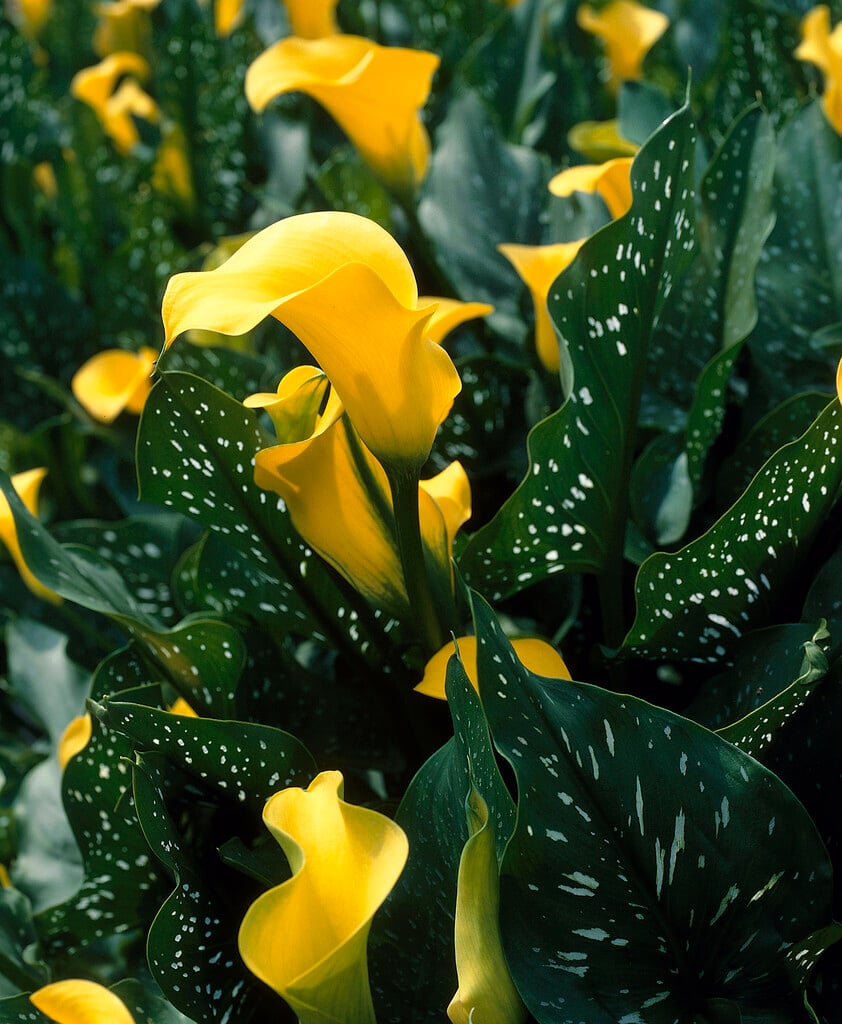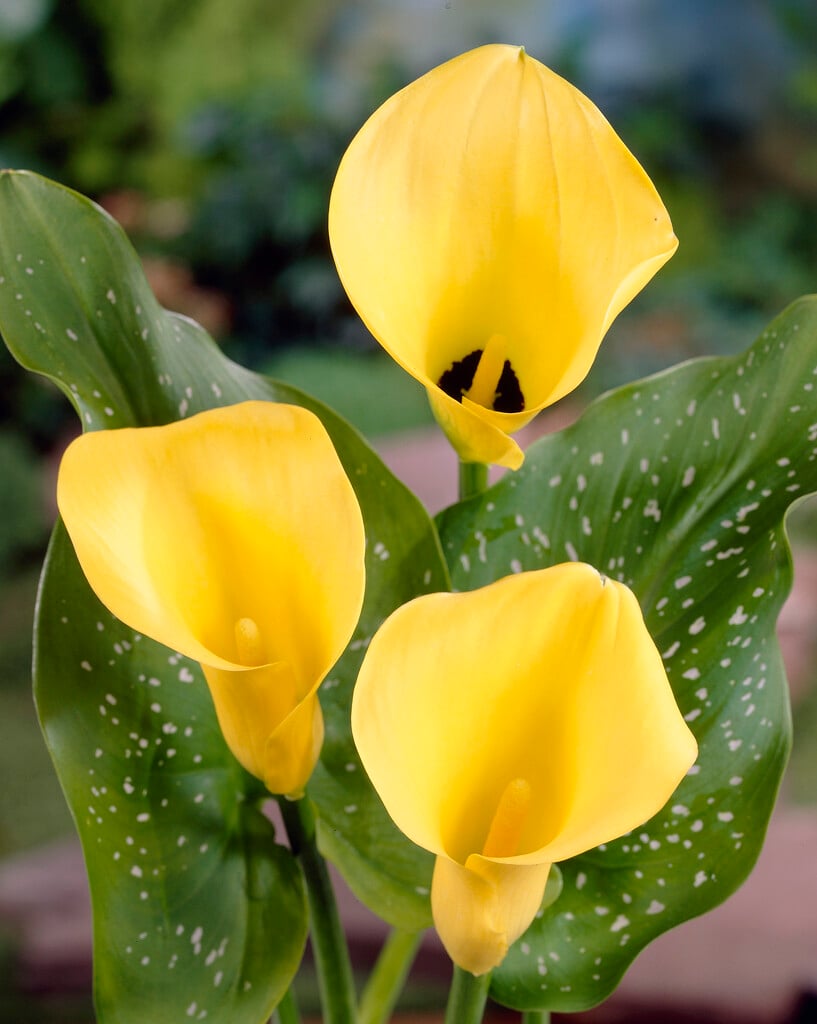Size
Ultimate height
0.5–1 metresTime to ultimate height
1 yearUltimate spread
0.1–0.5 metresGrowing conditions
Moisture
Moist but well–drainedpH
NeutralColour & scent
| Stem | Flower | Foliage | Fruit | |
| Spring | Green White | |||
|---|---|---|---|---|
| Summer | Yellow | Green White | ||
| Autumn | Green White | |||
| Winter |
Position
- Full sun
Aspect
South–facing or West–facing
Exposure
Sheltered Hardiness
H1CBotanical details
- Family
- Araceae
- Native to GB / Ireland
- No
- Foliage
- Deciduous
- Habit
- Bushy
- Potentially harmful
- Harmful if eaten, skin/eye irritant. Wear gloves and other protective equipment when handling. Pets: Harmful if eaten, skin/eye irritant - for further information and contact numbers regarding pets, see the HTA guide to potentially harmful plants
- Genus
Zantedeschia can be deciduous or semi-evergreen, tuberous perennials with lance-shaped or arrow-shaped leaves and tiny yellow flowers forming a dense spike-like spadix, with a showy, hood-like spathe, sometimes followed by orange berry-like fruits
- Name status
Correct
- Plant range
- Northern South Africa
How to grow
Cultivation
Use as summer bedding, planting in a moist, humus-rich, but well-drained soil in full sun. Lift and store overwinter in trays of peat-free compost in a cool, frost-free garage or shed and plant out tubers in spring after risk of frost has passed. Alternatively, grow in containers of peat-free, loam-based John Innes No2 potting compost and overwinter in a greenhouse or conservatory. See Zantedeschia cultivation
Propagation
Propagate by division in spring or propagate by seed, at 21-27°C (70-81°F) when ripe but flowers may not appear for 2 or 3 years.
Suggested planting locations and garden types
- Sub-tropical
- City and courtyard gardens
- Coastal
- Cottage and informal garden
- Patio and container plants
- Flower borders and beds
Pruning
Deadhead flowers and cut down yellowing foliage at the end of the season
Pests
May be susceptible to aphids or thrips; glasshouse red spider mite or glasshouse whitefly
Diseases
May be susceptible to fungal and bacterial rots and a virus
Get involved
The Royal Horticultural Society is the UK’s leading gardening charity. We aim to enrich everyone’s life through plants, and make the UK a greener and more beautiful place.

